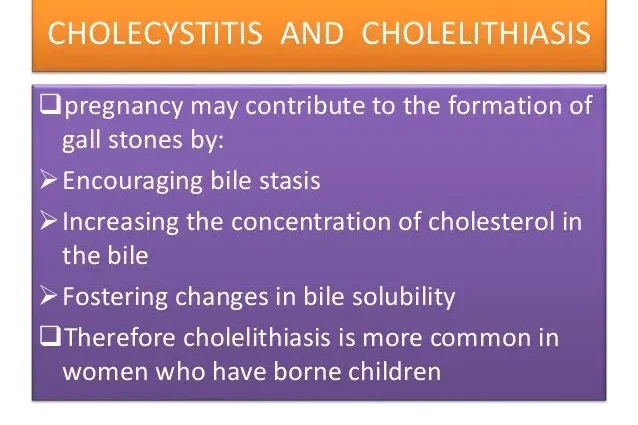Contents
Cholecystitis during pregnancy
Inflammation of the gallbladder – cholecystitis, one of the most common pathologies. This disease often develops during pregnancy or worsens during this period.
The reasons for the development of cholecystitis in pregnant women
Cholecystitis during pregnancy develops in 3% of women. And if you had to be treated for it before, the likelihood of relapse increases, especially in the third trimester.
Cholecystitis during pregnancy: pain in the right side and severe nausea
The main causes of gallbladder inflammation are:
- gastrointestinal infection;
- sedentary lifestyle;
- weak immunity;
- unhealthy diet: overeating or lack of food;
- nervous disorders.
When carrying a child, the onset of cholecystitis is most often provoked by pressure from the uterus on adjacent organs or hypomotor dyskinesia – relaxation of the gallbladder due to the large amount of the hormone progesterone. As a result, the excretion of bile is inhibited.
Complaints of pain in the right hypochondrium often accompany cholecystitis during pregnancy. When the fetus moves, these pains intensify and can also appear under the right shoulder blade or in the lower back.
Concomitant symptoms with cholecystitis are expressed:
- belching;
- bitterness in the mouth;
- nausea;
- fever;
- vomiting;
- bloating;
- pallor;
- tachycardia.
Chronic cholecystitis increases toxicosis and can prolong it up to 29 weeks. During this period, it is manifested by severe nausea, sometimes profuse salivation. Eating fatty and spicy foods also provokes cholecystitis and can cause nausea in pregnant women.
Cholecystitis during pregnancy: methods of dealing with the disease
Only a doctor can determine the presence of a disease and prescribe the correct treatment.
Pregnancy and cholecystitis are an unpleasant combination, but they will help to cope with the problem:
- special diet;
- taking choleretic drugs;
- taking antibiotics and analgesics that are safe for the fetus;
- taking stimulants of gallbladder motility;
- timely use of fluids.
Prescribing the medicine depends on the severity of the disease, the duration of pregnancy and the cause of the development of cholecystitis.
In acute pain, No-shpa is considered a safe medicine for the fetus.
If an exacerbation begins, and drug treatment does not work, it becomes necessary to resort to surgical intervention. But this measure during pregnancy is considered extreme, they resort to it when there is a danger to the mother’s life.










